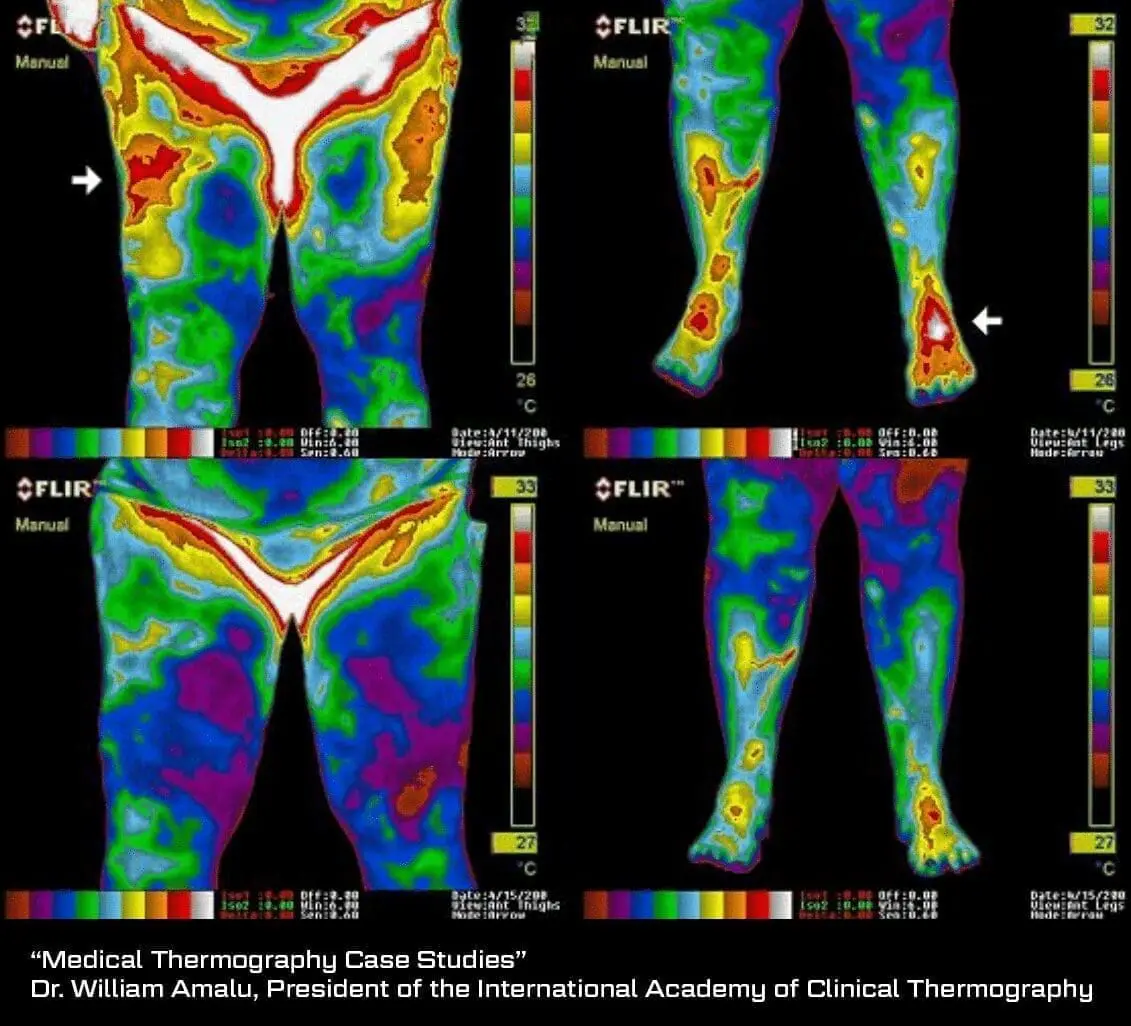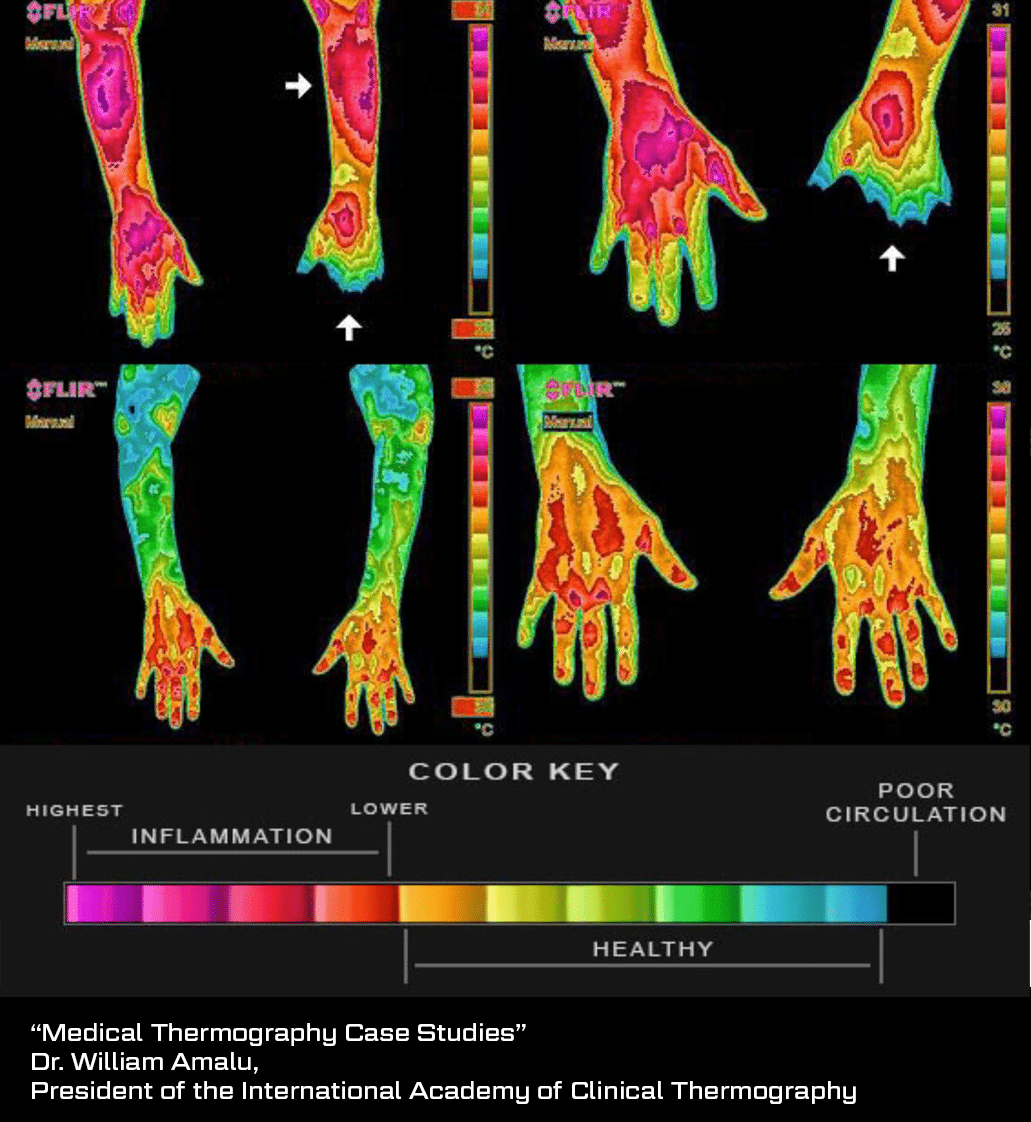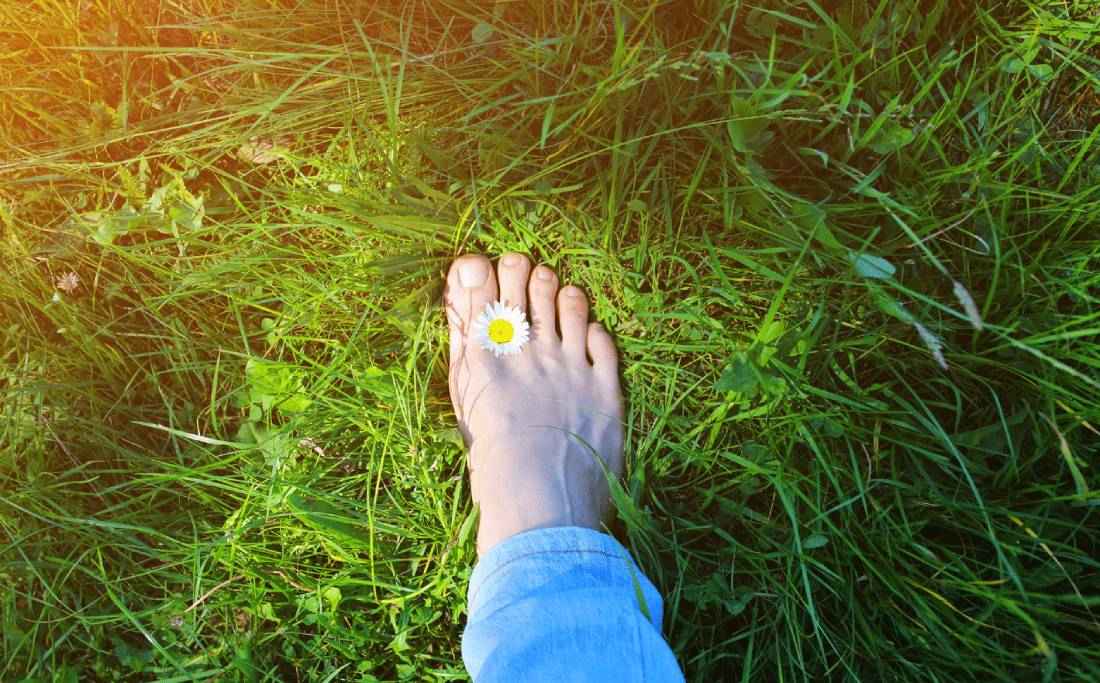What does it mean to be electrically coupled to the planet?
Simply put, it means touching the earth directly or touching anything that’s touching the earth with your bare skin, for example walking barefoot on the earth, touching a tree branch, or even using some of the fancy earthing gear now available (more on that later).
Also called grounding, this process of electrical coupling to the earth has been more recently referred to as earthing.
As much as it may sound like it, this isn’t some kind of hippy-dippy ridiculousness, either. The earth has a negative charge and is thus full of free electrons that will flow directly into the body when an electrical path is opened up. These free electrons can also quench free radicals, preventing cellular damage and sparing the body’s critical antioxidant reserves so they can serve other functions.
The immediate electromagnetic effects of earthing can be measured using a voltmeter, which is a device that measures the electrical potential between two points in a circuit (in physics, a volt is essentially an expression of the potential that can drive current in a system from one place to another).
If you were to hold onto a voltmeter with one electrode in your hand and the other in the earth, it would likely show a fairly high reading if you’re near any kind of EMFs (which is most of the time). This is known as ‘taking on voltage’. If you were then to put your barefoot on the ground, you would watch the number drop considerably.
Want to learn more about our top seller, CHOQ Purified Shilajit?
Check out our Shilajit Benefits page.
In the following video, you can see a demonstration in which a man takes his EMF-induced voltage from the 140s to about 0.3 with earthing:
As I’ve discussed in my previous article ‘4 Evidence-Based Methods to Boost your Immunity’, there have been over 20 peer-reviewed scientific studies demonstrating its effects on the human body.
We’ve mismatched our biology with our lifestyles, and—little by little—we’re waking up to the reality that many of the ways we think we’ve ‘improved’ our lives are actually to our detriment. Once you begin to appreciate the benefits of earthing, you may start to realize what so many other earthing enthusiasts have: that wearing shoes that electrically insulate us from the earth may have been one of the worst mistakes we’ve made as a civilization.
#1: Reduced Pain and Inflammation
Earthing has been shown to substantially reduce pain.
In a 2004 study, the researchers used a technique called medical thermography to measure differences in inflammation and circulation before and after earthing. The researchers also had the participants rate their pain on a standard four-point pain scale.
Medical thermography uses a Forward-Looking Infrared (FLIR) camera and operates under the principle that the areas that are the most inflamed on the body have a higher temperature while areas with poor circulation have the lowest temperatures.
The following infrared image is from a 65-year-old woman with thigh, hip, knee, ankle, and foot pain. The top image was taken as a baseline and the bottom image was taken after only 4 nights of sleeping on an earthing mat.

Since immune support is at the forefront of everyone’s minds right now, it’s also important to note that chronic inflammation is one of the worst things for the immune system, as it drives up a compound called NF-kB, which is used by viruses to enhance their replication.
If you want your immune system to be working at peak performance, you want an anti-inflammatory lifestyle, which means earthing may be an ideal therapy to incorporate into your regimen.
#2: Better Sleep
Even before the pandemic, Americans struggled with sleep disorders, but in the wake of all the chaos that unfolded in 2020, more and more people are suffering from ‘coronasomnia’, and earthing may be the perfect treatment.
Many people who sleep on earthing mats report improved sleep quality. In fact, when earthing pioneer Clint Ober originally experimented on himself, better sleep was the first thing he noticed.
In a 2004 study titled ‘the Biologic Effects of Grounding the Human Body During Sleep as Measured by Cortisol Levels and Subjective Reporting of Sleep, Pain, and Stress’, the researchers took 12 participants with sleep dysfunction, stress, and pain and had them sleep on a grounding mat for 8 weeks.
They reported the following results:
“Measurable improvements in diurnal cortisol profiles were observed, with cortisol levels significantly reduced during night-time sleep. Subjects’ 24-hour circadian cortisol profiles showed a trend toward normalization. Subjectively reported symptoms, including sleep dysfunction, pain, and stress, were reduced or eliminated in nearly all subjects.”
What’s particularly noteworthy is the normalization of the stress hormone cortisol, a molecule that’s notorious for dysregulating our mood, sleep, and inflammatory pathways when out of balance.
#3: Reduced Stress and Improved Autonomic Tone
Although the mystery of the exact mechanism of action has not been solved and may not be for quite some time, earthing has been shown to dramatically reduce stress in multiple studies. In addition to the aforementioned study in which it was able to normalize cortisol levels, it’s also been shown to reduce stress by improving autonomic tone.
What is autonomic tone?
Simply put, it’s the balancing act that your body does between the sympathetic (fight-or-flight) nervous system and the parasympathetic (rest-and-digest or feed-and-breed) nervous system. These two branches of the autonomic nervous system exemplify the Yin-Yang dynamic interaction of opposites you tend to see in the body.
Unfortunately, with the number of stressors that most of us face, too many of us have relatively poor autonomic tone, which means an excessive amount of the Yang / sympathetic nervous system activity. What the researchers found in this study was that grounding was able to increase autonomic tone by enhancing Heart Rate Variability (HRV).
HRV is determined by using an electrocardiogram (EKG) to measure the variations in timing between heartbeats, something that can only be controlled by the autonomic nervous system. Researchers have linked greater HRV to better mental resilience, less stress, better heart health, and improved emotional flexibility.
Biohackers are particularly interested in HRV, and the number of wearables that utilize it is growing.
#4: Increased Blood Flow
Circulation is everything.
It’s obvious that it’s essential for cardiovascular health, but in reality, it affects every system in the body. You have trillions of cells that all require a constant supply of fresh blood in order to function. They need nutrients, antioxidants, glucose, oxygen, and they also need to be policed for invaders.
Earthing can substantially improve blood flow. Recall the thermography image from the section on pain and inflammation? Here’s another one demonstrating significantly greater circulation as a result of earthing:

Another study in 2013 also found that earthing could reduce blood viscosity by reducing the ‘clumping’ of red blood cells. Shockingly, this effect took place after only a single 2 hour session.
In order to measure the changes in RBC clumping, the researchers examined clusters of blood cells under a microscope and counted how many were aggregated in each group. They also measured the movement of the cells by applying an electrical current to them and then recording their terminal velocities (which is called ‘electrophoretic mobility’).
Earthing: Exactly What We Need Right Now
If you want to not only survive the modern era, but truly grow and evolve with greater ease, you want to try as many healthy lifestyle habits as possible and incorporate the ones that work for you.
Earthing is an ideal therapy because, with the advent of earthing gear like mats, blankets, and pillowcases, you can even do it without going outside. Doing it the old fashioned way may prove more effective, but we don’t have any studies comparing the two yet, and we have plenty of studies showing that the equipment works wonders.
It’s exactly what we need, both literally and metaphorically. It’s an exceptionally potent therapeutic tool to elevate mood, restore circulation, and reduce stress, pain, and inflammation.
It’s also a perfect symbol.
In a world where we’re increasingly surrounded by totally synthetic environments, where we stare into screens more often than each other’s eyes, where likes are more common than hugs, earthing can help us come back to our roots by re-entraining us with something that we’re biologically predisposed to need for our physical and mental stability.






